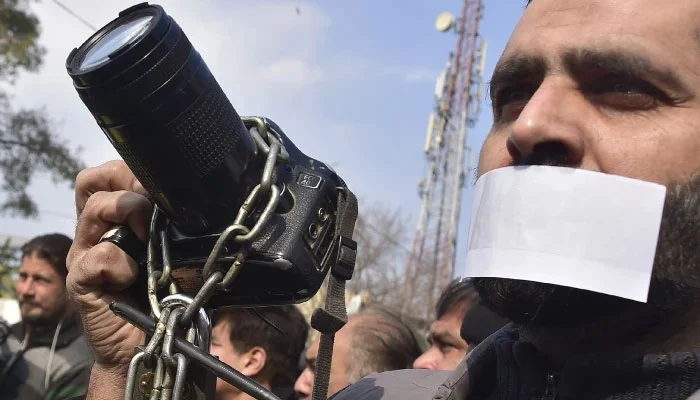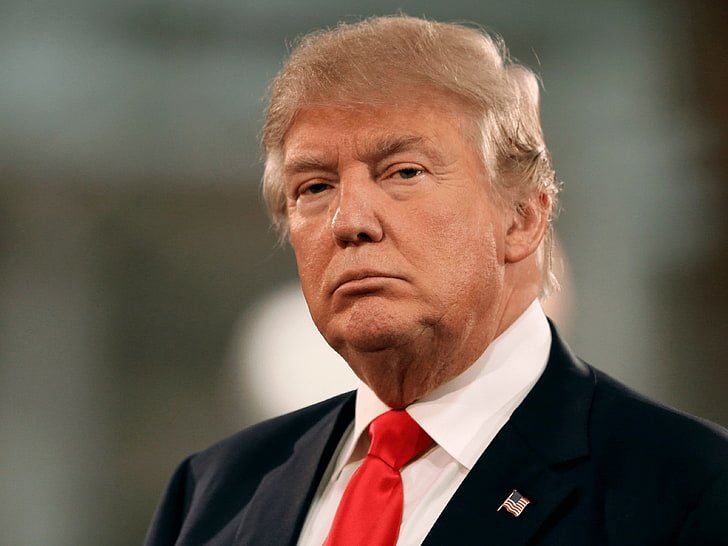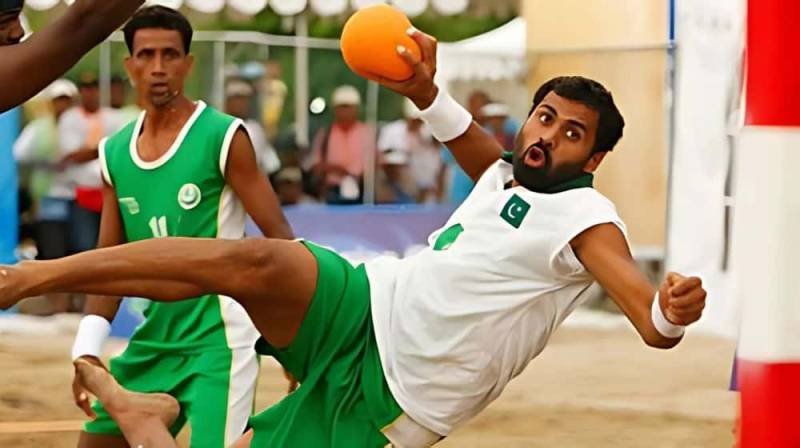IFJ Calls on Supreme Court to Review PECA Act Amid Concerns for Press Freedom in Pakistan
By Sohail Khan
July 15, 2025
Islamabad: The International Federation of Journalists (IFJ), the world’s largest organization representing media professionals, has urgently called upon the Supreme Court of Pakistan to conduct a comprehensive review of the Prevention of Electronic Crimes Act (PECA). This plea comes amidst growing concerns over the erosion of press freedom, suppression of dissent, and rising legal challenges faced by journalists across the country.
In a strongly worded letter addressed to Chief Justice of Pakistan, Justice Yahya Afridi, the IFJ requested that the apex court not only examine the legality and implications of the controversial PECA law but also issue directives to the government for necessary amendments. The IFJ emphasized that these amendments must be made in consultation with the Pakistan Federal Union of Journalists (PFUJ) and other relevant stakeholders, including civil society organizations, legal experts, and representatives of the media industry.
The PECA Controversy: Background and Legal Concerns
The PECA Act was initially introduced in 2016 under the pretext of tackling cybercrime and ensuring digital safety. However, since its inception, and particularly after recent amendments passed in 2025, the law has drawn sharp criticism from media houses, press unions, human rights groups, and international watchdogs. The Prevention of Electronic Crimes (Amendment) Act 2025 has been widely condemned as a tool for legal persecution, censorship, and intimidation of journalists and dissenting voices in Pakistan.
Among the most contentious clauses of the law are those that allow the government and law enforcement agencies to arrest individuals without warrants, block digital content, and initiate criminal proceedings against social media users, journalists, and bloggers for content considered “fake,” “defamatory,” or “against national interest.” Critics argue that these terms are vague and open to arbitrary interpretation.
IFJ Expresses Deep Concern for Pakistan’s Press Freedom
In the letter to the Chief Justice, Anthony Bellanger, General Secretary of the IFJ, outlined the pressing need to revisit PECA. He stressed that the current political, economic, and social environment in Pakistan has created dangerous conditions for media professionals, further exacerbated by the expanded powers granted under PECA.
“The heightened legal persecution of journalists, including cases of defamation, harassment, arrests, and intimidation under PECA, is creating an atmosphere of fear and self-censorship,” Bellanger warned. “This is in direct violation of the rights enshrined in Article 19 of Pakistan’s Constitution, which guarantees freedom of speech and expression.”
Bellanger also emphasized Pakistan’s commitments to international conventions and organizations, including the United Nations and the International Labour Organisation (ILO), which uphold the right to free expression and press freedom. He argued that the provisions of PECA contradict Pakistan’s obligations under these global frameworks.
Press Freedom Violations on the Rise
The IFJ cited alarming statistics from its Pakistan Press Freedom Report (May 2024 – April 2025). According to the report, there were at least 34 documented violations of press freedom during this period. These include:
-
7 targeted killings of journalists
-
8 cases of physical assaults and violence
-
Multiple incidents of legal harassment, including arbitrary detentions, lawsuits under PECA, and threats from both state and non-state actors
-
Attacks on media houses, leading to suspension of transmission or shutdown of publications
“These violations are not isolated incidents. They are part of a broader pattern of state and non-state hostility toward the press, especially in a politically charged environment,” Bellanger stated.
Journalist Protests and Domestic Resistance
The IFJ’s letter coincides with growing protests across Pakistan by journalist unions and press clubs. On February 1, 2025, the Khyber Union of Journalists staged a significant demonstration outside the Peshawar Press Club (PPC) against the newly amended PECA Act. The protestors, carrying placards and chanting slogans for press freedom, demanded immediate repeal or substantial amendment of the Act.
Similar demonstrations have occurred in Karachi, Lahore, Quetta, and Islamabad, where journalists decried what they called the “criminalization of journalism.”
The Pakistan Federal Union of Journalists (PFUJ), which is affiliated with the IFJ, has been at the forefront of this struggle. PFUJ President Rana Azeem has repeatedly highlighted the growing repression under PECA and urged the judiciary and parliament to safeguard journalistic freedom.
IFJ Missions to Pakistan: Listening to the Voices of Journalists
In 2025, the IFJ undertook two fact-finding missions to Pakistan in response to the rising concerns. These missions were designed to engage directly with journalists, collect testimonies, and understand the ground realities.
-
The first mission, led by IFJ President Dominique Pradalié, involved high-level meetings with press clubs, journalists facing legal action, and human rights organizations.
-
The second mission was headed by Jane Worthington, IFJ’s Asia-Pacific Regional Director, and focused on legal support, safety training, and advocacy strategies.
“These missions revealed a bleak picture,” the IFJ noted. “Journalists are being silenced through economic pressures, threats, lawsuits, and unjust laws like PECA. The government’s failure to protect media freedom is evident.”
Underpayment, Job Insecurity, and Threats
Beyond legal issues, the IFJ also highlighted structural challenges faced by Pakistan’s media workers. These include:
-
Irregular salaries and prolonged wage delays
-
Unjust terminations without due process
-
Lack of safety protocols in conflict or protest reporting
-
Gender-based discrimination and harassment in newsrooms
-
Zero accountability for crimes against journalists
“The system is designed to break the morale of independent journalism,” said one anonymous journalist interviewed by the IFJ team. “Either you toe the line, or you’re pushed out, or worse, jailed or attacked.”
Article 19 and Legal Precedents
Article 19 of the Constitution of Pakistan guarantees that “every citizen shall have the right to freedom of speech and expression, and there shall be freedom of the press.” However, the state is allowed to impose “reasonable restrictions” in the interest of the glory of Islam, integrity, security, or defense of Pakistan, among other grounds.
Legal experts argue that the broad and ambiguous language of PECA allows authorities to override constitutional protections. Several lawyers have challenged PECA’s provisions in high courts, especially in relation to Section 20, which criminalizes defamation online and is frequently used against journalists and social media activists.
National and International Reactions
Apart from the IFJ, several international and regional organizations have condemned the amendments to PECA, including:
-
Reporters Without Borders (RSF)
-
Committee to Protect Journalists (CPJ)
-
Amnesty International
-
Human Rights Watch
-
South Asian Free Media Association (SAFMA)
These organizations have urged Pakistan to bring its media laws in line with global democratic norms and refrain from using legal tools to stifle independent journalism.
Domestically, some politicians and civil society actors have also voiced concerns. A few senators have called for parliamentary review committees, while human rights lawyers have submitted public interest petitions in provincial courts challenging PECA’s legality.
IFJ’s Recommendations and Appeal to the Supreme Court
In its letter, the IFJ made the following key demands to the Supreme Court of Pakistan:
-
Review the constitutionality of the Prevention of Electronic Crimes (Amendment) Act 2025.
-
Issue directives to the federal government to amend PECA in consultation with PFUJ, civil society groups, and media representatives.
-
Ensure all amendments uphold the spirit of Article 19 of the Constitution and international commitments to free speech.
-
Monitor the misuse of PECA by law enforcement and government departments against journalists.
-
Establish a joint committee comprising media, judiciary, and human rights organizations to monitor press freedom violations.
Copies Sent to Key Authorities
The IFJ also dispatched copies of the letter to:
-
Prime Minister Shehbaz Sharif
-
Chief Justice of Islamabad High Court
-
Rana Azeem, President, Pakistan Federal Union of Journalists (PFUJ)
This move underscores the IFJ’s commitment to pursuing reform not just through judicial means but also through political and institutional advocacy.
Conclusion: A Call for Immediate Action
The IFJ’s intervention marks a significant moment in the ongoing battle for press freedom in Pakistan. As the country faces an increasingly volatile political climate, the role of independent journalism is more critical than ever. Yet, the environment for media workers remains perilous.
It is now up to Pakistan’s Supreme Court, government leaders, and democratic institutions to decide whether the nation will uphold its constitutional promise of free speech or continue down a path of suppression and fear.
The international journalist community, civil society, and informed citizens await the response of the Supreme Court and hope for a future where truth is not a crime and journalism is not a threat.
IFJ Calls on Supreme Court to Review PECA Act Amid Concerns for Press Freedom in Pakistan
By Sohail Khan
July 15, 2025
Islamabad: The International Federation of Journalists (IFJ), the world’s largest organization representing media professionals, has urgently called upon the Supreme Court of Pakistan to conduct a comprehensive review of the Prevention of Electronic Crimes Act (PECA). This plea comes amidst growing concerns over the erosion of press freedom, suppression of dissent, and rising legal challenges faced by journalists across the country.
In a strongly worded letter addressed to Chief Justice of Pakistan, Justice Yahya Afridi, the IFJ requested that the apex court not only examine the legality and implications of the controversial PECA law but also issue directives to the government for necessary amendments. The IFJ emphasized that these amendments must be made in consultation with the Pakistan Federal Union of Journalists (PFUJ) and other relevant stakeholders, including civil society organizations, legal experts, and representatives of the media industry.
The PECA Controversy: Background and Legal Concerns
The PECA Act was initially introduced in 2016 under the pretext of tackling cybercrime and ensuring digital safety. However, since its inception, and particularly after recent amendments passed in 2025, the law has drawn sharp criticism from media houses, press unions, human rights groups, and international watchdogs. The Prevention of Electronic Crimes (Amendment) Act 2025 has been widely condemned as a tool for legal persecution, censorship, and intimidation of journalists and dissenting voices in Pakistan.
Among the most contentious clauses of the law are those that allow the government and law enforcement agencies to arrest individuals without warrants, block digital content, and initiate criminal proceedings against social media users, journalists, and bloggers for content considered “fake,” “defamatory,” or “against national interest.” Critics argue that these terms are vague and open to arbitrary interpretation.
____________________________________________________________________________________________________________________________________
Emirates Announces Job Interviews in 2 Pakistani Cities
Read This Article
IFJ Expresses Deep Concern for Pakistan’s Press Freedom
In the letter to the Chief Justice, Anthony Bellanger, General Secretary of the IFJ, outlined the pressing need to revisit PECA. He stressed that the current political, economic, and social environment in Pakistan has created dangerous conditions for media professionals, further exacerbated by the expanded powers granted under PECA.
“The heightened legal persecution of journalists, including cases of defamation, harassment, arrests, and intimidation under PECA, is creating an atmosphere of fear and self-censorship,” Bellanger warned. “This is in direct violation of the rights enshrined in Article 19 of Pakistan’s Constitution, which guarantees freedom of speech and expression.”
Bellanger also emphasized Pakistan’s commitments to international conventions and organizations, including the United Nations and the International Labour Organisation (ILO), which uphold the right to free expression and press freedom. He argued that the provisions of PECA contradict Pakistan’s obligations under these global frameworks.
Press Freedom Violations on the Rise
The IFJ cited alarming statistics from its Pakistan Press Freedom Report (May 2024 – April 2025). According to the report, there were at least 34 documented violations of press freedom during this period. These include:
-
7 targeted killings of journalists
-
8 cases of physical assaults and violence
-
Multiple incidents of legal harassment, including arbitrary detentions, lawsuits under PECA, and threats from both state and non-state actors
-
Attacks on media houses, leading to suspension of transmission or shutdown of publications
“These violations are not isolated incidents. They are part of a broader pattern of state and non-state hostility toward the press, especially in a politically charged environment,” Bellanger stated.
Journalist Protests and Domestic Resistance
The IFJ’s letter coincides with growing protests across Pakistan by journalist unions and press clubs. On February 1, 2025, the Khyber Union of Journalists staged a significant demonstration outside the Peshawar Press Club (PPC) against the newly amended PECA Act. The protestors, carrying placards and chanting slogans for press freedom, demanded immediate repeal or substantial amendment of the Act.
Similar demonstrations have occurred in Karachi, Lahore, Quetta, and Islamabad, where journalists decried what they called the “criminalization of journalism.”
The Pakistan Federal Union of Journalists (PFUJ), which is affiliated with the IFJ, has been at the forefront of this struggle. PFUJ President Rana Azeem has repeatedly highlighted the growing repression under PECA and urged the judiciary and parliament to safeguard journalistic freedom.
IFJ Missions to Pakistan: Listening to the Voices of Journalists
In 2025, the IFJ undertook two fact-finding missions to Pakistan in response to the rising concerns. These missions were designed to engage directly with journalists, collect testimonies, and understand the ground realities.
-
The first mission, led by IFJ President Dominique Pradalié, involved high-level meetings with press clubs, journalists facing legal action, and human rights organizations.
-
The second mission was headed by Jane Worthington, IFJ’s Asia-Pacific Regional Director, and focused on legal support, safety training, and advocacy strategies.
“These missions revealed a bleak picture,” the IFJ noted. “Journalists are being silenced through economic pressures, threats, lawsuits, and unjust laws like PECA. The government’s failure to protect media freedom is evident.”
Underpayment, Job Insecurity, and Threats
Beyond legal issues, the IFJ also highlighted structural challenges faced by Pakistan’s media workers. These include:
-
Irregular salaries and prolonged wage delays
-
Unjust terminations without due process
-
Lack of safety protocols in conflict or protest reporting
-
Gender-based discrimination and harassment in newsrooms
-
Zero accountability for crimes against journalists
“The system is designed to break the morale of independent journalism,” said one anonymous journalist interviewed by the IFJ team. “Either you toe the line, or you’re pushed out, or worse, jailed or attacked.”
Article 19 and Legal Precedents
Article 19 of the Constitution of Pakistan guarantees that “every citizen shall have the right to freedom of speech and expression, and there shall be freedom of the press.” However, the state is allowed to impose “reasonable restrictions” in the interest of the glory of Islam, integrity, security, or defense of Pakistan, among other grounds.
Legal experts argue that the broad and ambiguous language of PECA allows authorities to override constitutional protections. Several lawyers have challenged PECA’s provisions in high courts, especially in relation to Section 20, which criminalizes defamation online and is frequently used against journalists and social media activists.
National and International Reactions
Apart from the IFJ, several international and regional organizations have condemned the amendments to PECA, including:
-
Reporters Without Borders (RSF)
-
Committee to Protect Journalists (CPJ)
-
Amnesty International
-
Human Rights Watch
-
South Asian Free Media Association (SAFMA)
These organizations have urged Pakistan to bring its media laws in line with global democratic norms and refrain from using legal tools to stifle independent journalism.
Domestically, some politicians and civil society actors have also voiced concerns. A few senators have called for parliamentary review committees, while human rights lawyers have submitted public interest petitions in provincial courts challenging PECA’s legality.
IFJ’s Recommendations and Appeal to the Supreme Court
In its letter, the IFJ made the following key demands to the Supreme Court of Pakistan:
-
Review the constitutionality of the Prevention of Electronic Crimes (Amendment) Act 2025.
-
Issue directives to the federal government to amend PECA in consultation with PFUJ, civil society groups, and media representatives.
-
Ensure all amendments uphold the spirit of Article 19 of the Constitution and international commitments to free speech.
-
Monitor the misuse of PECA by law enforcement and government departments against journalists.
-
Establish a joint committee comprising media, judiciary, and human rights organizations to monitor press freedom violations.
Copies Sent to Key Authorities
The IFJ also dispatched copies of the letter to:
-
Prime Minister Shehbaz Sharif
-
Chief Justice of Islamabad High Court
-
Rana Azeem, President, Pakistan Federal Union of Journalists (PFUJ)
This move underscores the IFJ’s commitment to pursuing reform not just through judicial means but also through political and institutional advocacy.
Conclusion: A Call for Immediate Action
The IFJ’s intervention marks a significant moment in the ongoing battle for press freedom in Pakistan. As the country faces an increasingly volatile political climate, the role of independent journalism is more critical than ever. Yet, the environment for media workers remains perilous.




